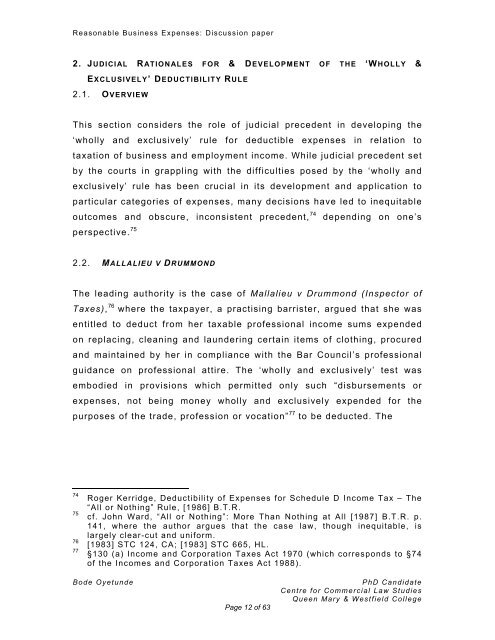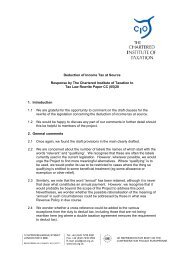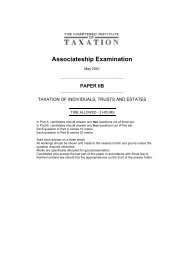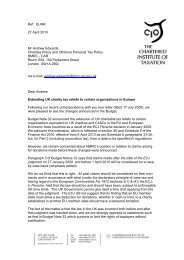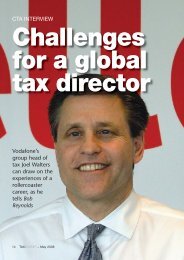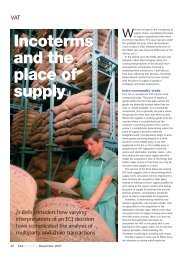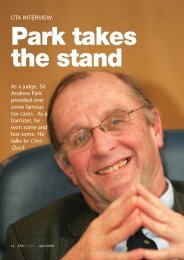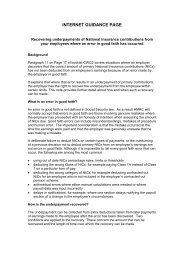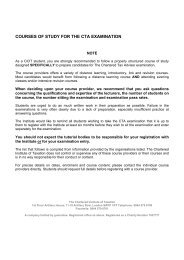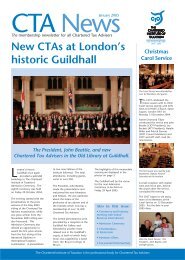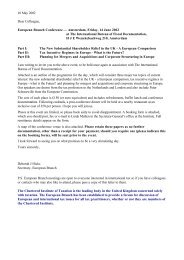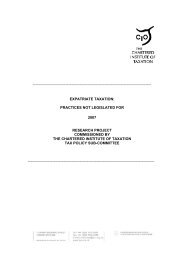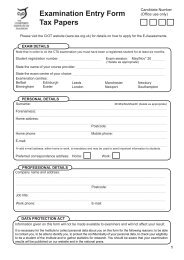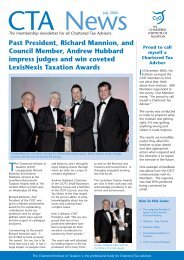Reasonable Business Expense - The Chartered Institute of Taxation
Reasonable Business Expense - The Chartered Institute of Taxation
Reasonable Business Expense - The Chartered Institute of Taxation
You also want an ePaper? Increase the reach of your titles
YUMPU automatically turns print PDFs into web optimized ePapers that Google loves.
<strong>Reasonable</strong> <strong>Business</strong> <strong>Expense</strong>s: Discussion paper2. JUDICIAL R ATIONALES FOR & DEVELOPMENT OF THE ‘WHOLLY &EXCLUSIVELY’ DEDUCTIBILITY RULE2.1. OVERVIEWThis section considers the role <strong>of</strong> judicial precedent in developing the‘wholly and exclusively’ rule for deductible expenses in relation totaxation <strong>of</strong> business and employment income. While judicial precedent setby the courts in grappling with the difficulties posed by the ‘wholly andexclusively’ rule has been crucial in its development and application toparticular categories <strong>of</strong> expenses, many decisions have led to inequitableoutcomes and obscure, inconsistent precedent, 74 depending on one’sperspective. 752.2. MALLALIEU V DRUMMOND<strong>The</strong> leading authority is the case <strong>of</strong> Mallalieu v Drummond (Inspector <strong>of</strong>Taxes), 76 where the taxpayer, a practising barrister, argued that she wasentitled to deduct from her taxable pr<strong>of</strong>essional income sums expendedon replacing, cleaning and laundering certain items <strong>of</strong> clothing, procuredand maintained by her in compliance with the Bar Council’s pr<strong>of</strong>essionalguidance on pr<strong>of</strong>essional attire. <strong>The</strong> ‘wholly and exclusively’ test wasembodied in provisions which permitted only such “disbursements orexpenses, not being money wholly and exclusively expended for thepurposes <strong>of</strong> the trade, pr<strong>of</strong>ession or vocation” 77 to be deducted. <strong>The</strong>74757677Roger Kerridge, Deductibility <strong>of</strong> <strong>Expense</strong>s for Schedule D Income Tax – <strong>The</strong>“All or Nothing” Rule, [1986] B.T.R.cf. John Ward, “All or Nothing”: More Than Nothing at All [1987] B.T.R. p.141, where the author argues that the case law, though inequitable, islargely clear-cut and uniform.[1983] STC 124, CA; [1983] STC 665, HL.§130 (a) Income and Corporation Taxes Act 1970 (which corresponds to §74<strong>of</strong> the Incomes and Corporation Taxes Act 1988).Bode OyetundePage 12 <strong>of</strong> 63PhD CandidateCentre for Commercial Law StudiesQueen Mary & Westfield College


